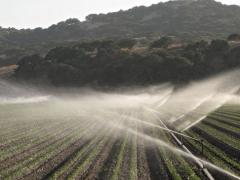Reform of the EU Common Agricultural Policy: Environmental impacts in developing countries
The proposed reform of the Common Agricultural Policy (CAP) will have little impact in developing countries. This is the conclusion by the PBL Netherlands Environmental Assessment Agency. Opportunities for the reform to have a positive effect on sustainable rural development in these countries are not being utilised.
Why CAP reform as proposed will have little effect on the environment in developing countries
In this study we investigated the main mechanisms by which the reform of the CAP could influence the environment in developing countries. In all cases the effects appear to be of little significance, for example:
- Theoretically, a change in EU market conditions induced by CAP reform could have an effect on global markets, which in turn could induce developing countries to change their own agricultural systems, with either positive or negative environmental effects. Model projections, however, suggest that the proposed reform will have very little effect on global markets.
- Although the proposal does offer more opportunities to fund innovations to improve production methods, research that includes parties from developing countries is not envisaged.
- Some of the proposed measures are targeted at a reduction in greenhouse gas emissions from EU agriculture. Fewer emissions would slow down climate change to the benefit of many developing countries. However, calculations show that the effect of these CAP measures is negligible.
Opportunities for a reform that benefits sustainable agricultural development in developing countries
In the longer term, to be coherent with EU development objectives, CAP reforms would need to exploit potential synergies and take into account the broader context of global trade and food security policies. But there are also opportunities within the scope of the current reform. For example:
- Eliminating any remaining CAP measures that could increase food price instability in developing countries. Export subsidies, for instance, allow the EU to incidentally export excess produce at times when there is already an excess on the global market, thus causing further lowering of prices and harming producers in developing countries.
- Payments to farmers could be more closely linked to public services, such as reducing greenhouse gas emissions and increasing agricultural biodiversity.
- Extending the benefits of CAP funding for innovation and technology development – for example, to improve agricultural water management – to also include partnerships with developing countries.
- Set up a monitoring and reporting mechanism to identify the impacts of CAP measures on developing countries in the broader context of other EU policies. If harmful consequences for developing countries are documented, CAP measures could be adjusted.
Authors
Specifications
- Publication title
- Reform of the EU Common Agricultural Policy: Environmental impacts in developing countries
- Publication date
- 8 November 2012
- Publication type
- Publication
- Product number
- 583




